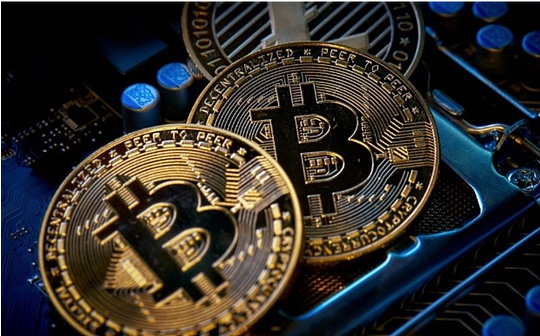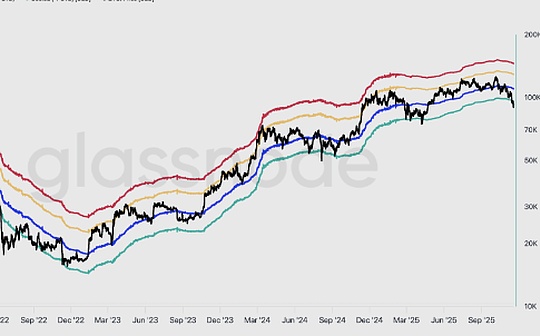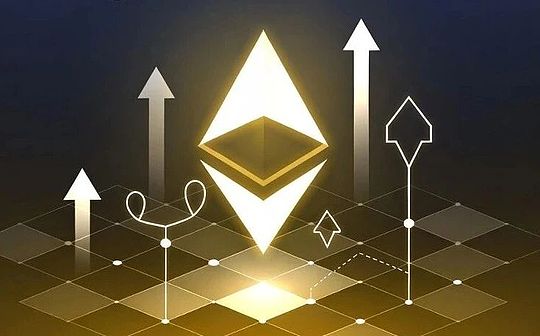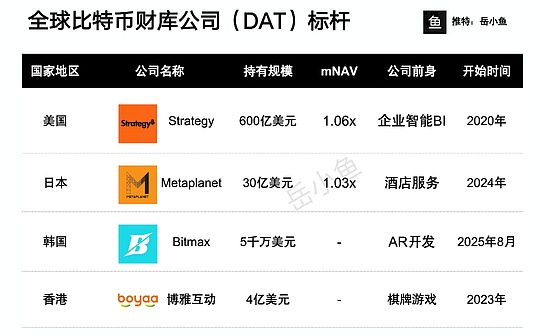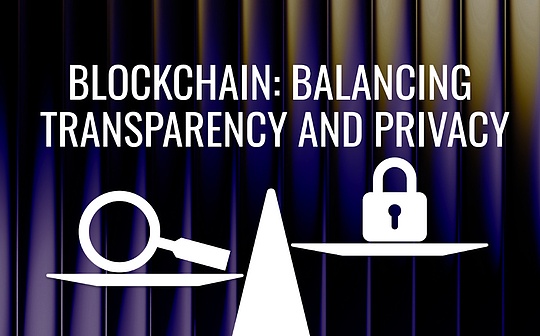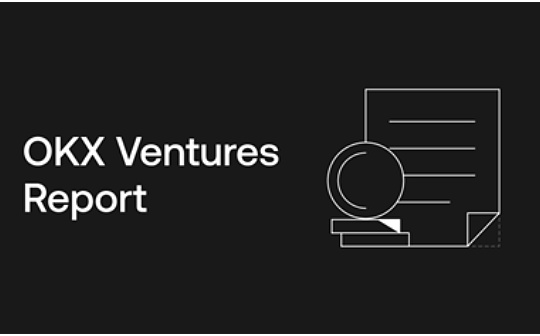
Decentralized Science DeSci takes blockchain technology as its core and tries to fundamentally transform the architecture and operation of traditional scientific research.
Under multiple contradictions such as concentrated resources, rigid management, and limited knowledge dissemination, traditional scientific research models are increasingly showing their inherent flaws, and DeSci is emerging as a disruptor, opening up a new scientific research paradigm.
DeSci proposed a new model with community-centered and transparency-based: through decentralized autonomous organizations (DAOs), the allocation of scientific research funds and resources has become more fair; the scientific research process recorded on the chain not only eliminates corruption, but alsoProvides a verifiable trust mechanism for the public and researchers.In addition, DeSci advocates open access to academic achievements, allowing scientific research to break through the barriers to publishing costs, promote data sharing and knowledge dissemination, and provide a new path for science to benefit the society inclusively.
Although DeSci is still in its early stages of exploration, its potential cannot be ignored, for example, breaking the concentration of resources and opportunities in traditional scientific research systems, improving accessibility and transparency of research, encouraging wider community participation and collaboration, and providing scientific research work.New governance and funding models, etc.Just as the open source software revolution has changed the pattern of technology development, DeSci is also expected to become the “open source movement” in the field of scientific research.It not only carries the vision of fair distribution of resources, but also is likely to become an accelerator of scientific democratization and return the future of scientific research to global communities.DeSci, a new scientific research model, emphasizes transparency, open access and social participation, and represents an important direction of change in the field of scientific research.Although DeSci is still in its early stages of development, it provides new possibilities for solving structural problems in traditional scientific research systems.
As a supporter of cutting-edge innovative technologies,OKX VenturesWe conducted in-depth research on this track and came to the following core conclusions:
in conclusion1:DeSciThe track is very popular, but the market is in the early stage of game
DeSci has attracted a large number of users’ attention as an emerging field, but asset liquidity and market maturity are still insufficient.Taking VitaDAO as an example, its valuation system has not yet stabilized, and the market performance fluctuates violently and has a short cycle.This shows that the overall DeSci ecology is still in the early stage of exploration and it still takes time to develop to establish mature valuation standards.
in conclusion2:BioDAOOther scientific research funding projects face closed-loop challenges
BioDAO is regarded as a “DeFi protocol” in the field of scientific research, and innovative funding mechanisms and clear Roadmap have laid the foundation for its future development.However, the quantifiable path from financial support to transformation of scientific research results has not been fully opened.The lack of a clear feedback closed loop may become the main obstacle to attracting trust and financial support in the long run.
in conclusion3:MemeDriver isDeSciThe core of the current narrative
Although the concept of DeSci is rooted in scientific research, current popularity is more dependent on Meme drive.For example, Sci-Hub, as a symbolic symbol of the community, attracts highly involved but inadequate conversion.Similarly, the project pump.science encourages “storytelling” teams, but needs further optimization in the experimental mechanism.If DeSci wants to make a breakthrough, it requires the support and promotion of authoritative figures in the field of science.
in conclusion4: There is still a long way to go in product implementation and marketization
Even relatively mature projects such as VitaDAO, its main products have not yet formed significant market influence, and there is a significant gap with traditional scientific research companies such as Altos Lab.Most DeSci projects are still in the stage of proof of concept or small-scale experiments, and are unable to undertake the complex project management and data verification processes required for serious scientific research, and there is still a long way to go before industrialization.
in conclusion5: Return to the core advantages of blockchain and break through the problem of implementation
The future application of DeSci should give full play to the core capabilities of blockchain technology, such as data traceability, decentralized fund allocation, verifiable academic publishing and peer review.In the short term, it is difficult to implement the combination with complex offline scenarios, so it is more suitable to give priority to the development of scientific research scenarios that adapt to the advantages of blockchain and achieve steady progress.
one,DeSciMethods and use cases
As an innovative application of Web3 technology in the field of scientific research, DeSci is solving the core pain points in traditional science (TradSci) through a series of key methods and specific use cases.
Innovate traditional scientific research methods,DeSciThree key solutions are currently provided, covering fairness and decentralization of fund allocation, openness and security of data and publications, and promoting reproducibility of scientific research.
In terms of fairness and decentralization of fund allocation,The allocation of traditional scientific research funds is usually concentrated in a few authoritative institutions, while DeSci uses secondary donation mechanisms and decentralized autonomous organizations (DAOs) to achieve transparent management and distribution of funds through smart contracts.This mechanism not only lowers the threshold for scientific researchers to obtain funds, but also provides support for innovative and diversified scientific research projects and promotes the fair allocation of global scientific research resources.
Openness and security aspects of data and publications,DeSci stores scientific research data and publications in public ledgers through a decentralized blockchain-based research repository to ensure results are traceable and transparent.Smart contracts provide a fair distribution mechanism for data access, allowing researchers and institutions to share and use critical data resources while protecting intellectual property rights.
Promote the reproducibility of scientific research,In scientific research, confirmatory experiments and data repetition are crucial.DeSci rewards repeatable research practices by introducing token incentives and reputation systems.Blockchain-based smart contracts also support a transparent peer review process to ensure the reliability and authenticity of scientific research discoveries.
DeSciFour major use cases in practice include decentralization of academic publishing, transparent management of research funds, innovative models of data sharing and collaboration, and transparency of peer review.
Specifically, first, the DeSci platform establishes a decentralized repository that allows researchers to publish work results directly.This not only breaks the barriers of traditional academic journals, but also significantly expands the accessibility of scientific knowledge and provides a new path for popularization and progress of science.Second, the DeSci platform adopts a decentralized fund allocation mechanism to provide transparent support for research projects through crowdfunding and smart contracts.Contributors receive rewards based on the quality of their research work to avoid corruption and waste of resources in traditional fund management.Third, the DeSci platform based on blockchain technology promotes the secure sharing of research data.Data can be monetized through tokenization, while ensuring scientists’ ownership of their research results, promoting the efficiency of international scientific research collaboration.Fourth, the DeSci platform enhances the credibility of scientific publications through immutable blockchain records, creating public archives of research contributions and peer review activities.This transparent accountability mechanism promotes a more open academic exchange environment.
As a disruptive force in traditional scientific research, DeSci is redefining scientific governance through technology-driven transparency, openness and equity.Although this field is still in its early stages of development, its potential has been revealed: DeSci is gradually becoming a key force in promoting scientific change, from academic publishing to data collaboration, from funding allocation to scientific research review.

two,DeSciTrack Overview
Decentralized Science (DeSci) leads innovative changes in various scientific research stages through token incentive mechanisms and modular design.From democratizing funding decisions to promoting open access to scientific knowledge, DeSci’s goal is consistent: breaking the limitations of traditional scientific research and providing scientists around the world with a more transparent and equitable scientific research ecosystem.The following are the specific practices and achievements of DeSci in open publishing and decentralized scientific research.
(I) Open publishing platform
The traditional scientific publishing process is slow and expensive, while the decentralized publishing platform improves the dissemination efficiency of scientific research through open and instant knowledge sharing.These DeSci platforms allow researchers to publish papers, datasets, and methods publicly, while introducing interactive peer review and social collaboration tools.
ResearchHub incentivizes peer reviewers to provide professional feedback on published research by introducing token-based reward mechanisms.Smart contracts are automatically paid after review is completed and verified to ensure that reviewers receive fair and timely returns.
DeSci Labs focuses on leveraging blockchain technology to ensure the integrity of scientific data, protecting published materials through untampered records, providing strong anti-censorship and anti-loss capabilities.Its development of DeSci Nodes allows researchers to create and publish research objects based on FAIR data standards, stored in an open decentralized data warehouse, and connect to permanently unique identifiers and decentralized resolver systems to support citations and accumulate academic credit..These research objects include: manuscripts, codes, data sets, videos, etc.
Developers can implement it through an open publishing platform, build applications on the open data layer, and implement custom coordination and value accumulation mechanisms.It can also be used to integrate with other DeSci stack modules, such as using the review results of the publishing platform or the influence of OpSci NFTs to verify the investigator’s identity and historical achievements.
Through the DeSci project, researchers and their datasets, methods and results can all be tokenized, including the publication of manuscripts.Traditional journal publishing models that require payment of upload or access will be replaced by decentralized data layers and market platforms.In this model: Researchers are free to display manuscripts, similar to NFTs being displayed publicly on platforms such as OpenSea.In addition, the platform fees will be targeted to users who wish to purchase or sell ownership of the research findings, rather than authors or readers.
With the continuous development of these development and publishing platforms, decentralized identity and reputation systems will gradually emerge.These systems help break down information silos and remove barriers from traditional “gatekeepers”, thereby promoting free flow of ideas between different research environments.
(II) ResearchDAO
DAO is one of the core practices of DeSci.It is a collective decision-making mechanism coordinated through blockchain and smart contracts, allowing community members to jointly fund and manage scientific projects.Research DAOs often focus on specific scientific topics such as longevity, genetics or environmental science, and allow funders, researchers and the public to decide on research directions through tokenized governance models.
For exampleBIOEcology: VitaDao, climate change and food security ValleyDAO, women’s health Athena DAO, Hair DAO for hair loss and other research investments such as FrontierDAO and VibeBio, respectively, are dedicated to space, fusion energy, climate and biotech startups.
Traditional funding models tend to support large-scale projects with low risk, while DAOs can fund more “small” research with high risk and high innovation potential.DAO’s decentralized governance mechanism avoids bureaucracy in traditional funding institutions and provides greater freedom for scientific research.
(III) Financing andIPplatform
DeSci’s funding and intellectual property (IP) projects promote the democratization of funding, ownership and commercialization of scientific innovation through blockchain technology.Such projects include issuing tokenization platforms that represent partial ownership of research projects, and integrating a blockchain-based grant management system—Partial researchDAOThese functions are also adopted.
Many DeSci funding platforms support research and protect intellectual property through tokenized assets, allowing community members to publish rewards for specific scientific directions that scientists can apply for for research.In addition, researchers are able to seek community funding and support for independent projects, thereby promoting a more inclusive model of scientific funding.This mechanism ensures that funds flow to widely supported projects and enables research to meet the diverse needs of the scientific community.
Molecule is an intellectual property financing and tokenization platform focused on the biopharmaceutical field.So far, the platform has allocated about $2 million to different research DAOs through its IP-NFT protocol and has driven the entire ecosystem TVL to $30 million.
Bio.xyz: On-chain science version Y Combinator incubated by Molecule, focusing on accelerating scientific innovation.
Funding is a pain point for scientists.They spent a lot of time writing funding applications, but the success of funding was largely dependent on their H index, which was used to quantify the impact of scientists’ papers.Under pressure, scientists often chase fresh hot topics to attract attention.Ultimately, insufficient and instability will not only reduce scientific research output, but will also lead to bias in the selection of research projects and even cause a “copy crisis”.
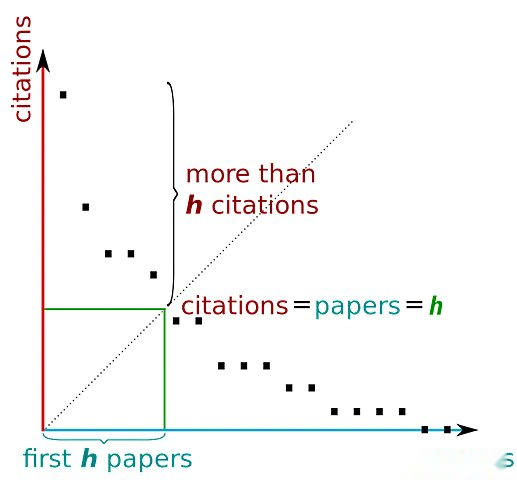
DeSci advocates replacing the h index with NFT, which can evaluate other important factors such as expertise, teaching ability, coaching skills, and collaboration with other scientists.To maintain operations, DAOs can monetize the intellectual property generated by their funding research through the introduction of IP-NFTs.Through Molecule Marketplace, research projects can be connected with potential investors, and research results are stored in IP-NFT metadata.IP-NFTs provide legal protection for research results and are innovative alternatives to traditional patents.Traditional patents tend to block and limit data, delaying the speed of scientific discovery, while IP-NFT is open and flexible and provides the following monetization methods:
-
licenseIPCommercialize: Licensing intellectual property rights to other institutions.
-
Divide ownership with partners: Share value by dividing intellectual property rights.
-
Trading data on open market: Continuously generate royalty income for creators.
-
Loan as collateral: Financing with the value of intellectual property rights.
-
IP-NFT can also bring new research coordination mechanisms, such as:
-
Access control: Verified participants contribute to the study and receive compensation only.
Over time, many DAOs may develop from a single funding function to an integrated community that covers other links of the research economy.In addition to these tokenized seed funding platforms, more decentralized secondary markets may appear in the future.These markets will enable researchers and funders to transfer ownership of intellectual property rights or license them to other investors and community members, further promoting the commercialization and collaboration of scientific innovation.
(IV) Medical Data Network
The decentralized healthcare data network aims to create a safer, more efficient and equitable healthcare system by using distributed databases and collaborative research tools.These platforms can summarize and analyze multiple datasets (such as clinical trial results, patient records, and genetic data), improving accessibility of data while protecting patient privacy.This area is particularly critical as the importance of medical data continues to increase, the popularity of personalized medical care, and the increasing demand for data protection and shared control of patients.
Given the complexity of the healthcare industry, the goals of the decentralized healthcare data network cover long-term development and diversification priorities:
GenomesDAO provides a decentralized genome database that securely stores and shares historical genomic data, supporting long-term drug development.
Life Network: Users can control and monetize DNA data, receive rewards through healthy living, and support researchers and developers to build personalized genome applications.
Hippocrat developed systems that track patient treatment progress in real time and safely share real-time data among authorized stakeholders.
Data Lake: Allows individuals to tokenize and sell health data and medical records to researchers.
As this field continues to evolve, the adoption of decentralized identity systems will gradually increase, enabling seamless, secure access to healthcare services across different service providers and jurisdictions.This will improve the continuity of care and enhance the overall patient experience.
(V) Infrastructure
Infrastructure projects are committed to building secure, scalable, and interoperable systems that meet the diverse needs of the global scientific community.These systems include decentralized governance tools, storage solutions, and systems that can identify users in different platforms and institutions.Through these solutions, other DeSci teams can focus on their core scientific research goals without worrying about the complexity of back-end systems being built and maintained.
1.Decentralized storage and computing
Arweave and Filecoin:Supports distributed storage and sharing of scientific data and NFTs (such as IP-NFTs, Impact Certificates).
Bacalhau: supports direct calculation of data storage locations (Compute Over Data), generating unique content identifiers (CIDs) to ensure data repeatability and verifiability.
2, collaboration mechanism and value realization
Lab.bio opens access to biological machine learning models and experimental tools for researchers without the need for expensive local resource configuration and hosting requirements.
Coordination Network provides AI-powered tools for research summary and data extraction, review and drafting of proposals, and recruitment of research candidates.
OpSci: Unlike IP-NFT, OpSci tokenize the identities, qualifications and projects of researchers using the “Impact Certificate” NFT.
3,Impact CertificateCooperation Tools
Holonym: zkDID, Web3 scientist yellow pages, allowing users to log in through academic credentials.
Hypercerts: ERC-1155 standard tokens for tracking research methods, data sets and results.Researchers can attract funds by showing research progress transparently while protecting data ownership.
The DeSci collaboration model allows researchers not only to obtain financial support more equitable, but also to improve the efficiency and credibility of scientific research globally through publicly verified data sets.To promote DeSci widely, it is crucial to improve the user-friendliness and value of the platform, especially for users who lack Web3 experience, although some projects choose to build their own infrastructure, modular and flexible components are still necessary.
(six)DeSci Memes
Researchers face many challenges in obtaining funds in the early stages, and there are significant difficulties in raising funds through issuing memecoin.First, most public lack scientific research knowledge and find it difficult to effectively support complex projects.In addition, it usually takes 5 to 10 years from initial research to actual results in scientific research, while the price of memecoin fluctuates violently, making it difficult to provide stable funding for long-term research.However, DeSci’s liquidity exit mechanism provides flexible funding guarantees for scientific research projects, and has indeed helped some scientific research teams at the financial level, bringing actual funding results. Other benefits include:
Cultural communication and promotion: DeSci meme as a cultural output and publicity tool that effectively directs the attention of the crypto community to the fields of DeSci and scientific research.
Incentive mechanism: DeSci meme creates a positive value cycle by allowing fund investors to participate in gamified incentives and speculative games, which not only increases the liquidity of funds, but also enhances investors’ sense of participation and interests.
3. Introduction to hot projects
(one)BIO DAO
BIO DAO is a launch and acceleration platform focusing on decentralized science (DeSci), bringing together scientists, patients and investors to use blockchain technology to disrupt traditional scientific research funding models.Through the BIO protocol, a financial infrastructure, BIO DAO provides on-chain organizational tools, financing support and intellectual property (IP) tokenization solutions to create a transparent and efficient scientific research funding ecosystem.Since its establishment, BIO DAO has promoted the development of 6 BioDAOs, with a total valuation of more than US$180 million, and has put more than US$10 million in scientific research IPs on the Molecule platform.
BIO DAO’s financing capabilities have attracted much attention: strategic financing is completed in 2024 (investors include Binance Labs) and Genesis auctions (raised $6.22 million).Its core technologies include IP-NFT and IPT token mechanisms, empowering transactions and sharing of scientific research results.In addition, BIO DAO supports the implementation of projects such as HairDAO (hair loss treatment) and CerebrumDAO (brain health research), showing the strong potential of the decentralized scientific research model.In the DeSci field where challenges and opportunities coexist, BIO DAO is opening up new paths for scientific research funding through innovative models and interdisciplinary collaboration.
(two)VitaDAO
VitaDAO is a pioneering program dedicated to extending human life span, focusing on supporting early research and development projects in longevity science around the world.Unlike the traditional scientific research funding model, VitaDAO uses blockchain technology to allow ordinary investors and professional institutions to participate through the DAO governance mechanism, providing more open and diversified investment opportunities.The platform’s core governance token, $VITA, supports token holders to participate in key matters such as funding decisions, intellectual property management, and ensures transparency and fairness of the community through an on-chain voting process.VitaDAO’s investment cases in the longevity field, such as support for Turn.bio, highlights its keen insight into cutting-edge scientific investments.
VitaDAO executes matters voted by DAO through the Canadian entity VitaDAO Global Services, Inc, ensuring that the execution of project funding is concentrated within the protected entity while providing legal protection to token holders.This structure can refuse to implement DAO decisions in extreme cases and allow stakeholders to seek resolution through legal avenues.In addition, VitaDAO has further promoted the innovation of global scientific research talents in the field of longevity through cooperation with Lonza to promote the research and development of drug candidate ARTAN-102 and launched the VitaLabs scholarship program.In the future, VitaDAO will continue to bring more breakthroughs to longevity scientific research through decentralized funding and governance models.
(three)PumpScience
Pump.Science is a decentralized science (DeSci) platform launched by Molecule DAO, aiming to fund longevity research through cryptocurrency and gamification mechanisms.The platform transforms anti-aging research into participatory prediction games, encouraging crypto communities to fund scientific experiments by buying and trading tokens.Users can track the experimental process in real time and evaluate the value of the experimental results through the appreciation or recession of tokens.Through this innovative model, Pump.Science hopes to open up new paths in the field of DeSci, promote the commercialization of longevity science and accelerate the transformation of research results.
Pump.Science’s operating model includes drug developers submitting experimental proposals and paying SOL tokens as experimental fees, and then raising funds on the platform by issuing tokens.The experiment is divided into multiple levels, from nematode experiments to mouse experiments, unlocking different research progress based on token sales.The experimental data is updated live in real time, allowing participants to participate and evaluate scientific research results.Through the token incentive mechanism, the platform provides flexible and continuous financial support, breaking through the limitations of traditional scientific research funds. Although ethical review and experimental design are still needed, its gamified and decentralized models bring to the scientific research fieldA brand new power.
(Four)Sci-Hub
Sci-Hub, founded in 2011 by Kazakh graduate student Alexandra Erbakian, aims to bypass the paywall of academic publishers and provide free access to scientific research papers.It has stored more than 85 million academic articles by February 2021, becoming an important resource for the global academic community, especially among academic institutions that cannot afford high subscription fees.Despite its operations sparked multiple legal disputes with publishers such as Elsevier, Erbakian insists that many scientific research results are funded by the government and should be open to the public.Recently, Sci-Hub launched the SCIHUB token to maintain platform operations and promote community participation, but this token has also sparked controversy over the way funds are raised.
The launch of SCIHUB tokens aims to raise funds through cryptocurrencies to maintain Sci-Hub’s operation and promote the platform ecosystem.Founder Erbakian can sell up to 1% of tokens (about 10 million) per month, with the goal of raising $20,000.However, some people believe that raising funds through hype of meme coins is inconsistent with the original intention of helping scientific research, and the token lacks actual value, and even accuses it of “rat trading”.But some supporters believe that this method is an innovative fundraising model that can increase community participation, similar to the concept of lottery, and inspire more people to support scientific research.The future application and value of SCIHUB tokens still need to be further developed and verified.
(five)ResearchHub
ResearchHub (RH) is a decentralized scientific research platform co-founded by CoinBase CEO Brian Armstrong, aiming to break the closure of traditional peer-reviewed journals.The core concept of RH is to prevent scientific research results from being hidden behind paywalls. Scientists can publish, like and comment on research results on the platform, similar to HackerNews in the scientific community.In addition, RH pays $150 per article for peer review, a practice that is particularly popular among scientific researchers in developing countries.Since its establishment, RH has completed 2,800 peer reviews, and its turnover time is much lower than that of traditional journal systems.As U.S. legislation requires federally funded research to be open to open access, RH announced it will expand into a journal platform to launch free preprints, open access publishing and paid peer review services.
ResearchHub is not only a decentralized science platform, but also part of the “Open Science” movement.By providing open peer review and rapid article processing, RH has greatly improved scientific research efficiency.One of the core innovations of RH is to introduce the prediction market to promote the replication and verifiability of scientific research results through pre-registration and prediction of research results.RH plans to redefine “real” scientific research standards through this innovative mechanism, especially under the financial and time pressures that are generally faced by the academic community, providing scientific researchers with a more efficient and fair working environment.
(six)Life Network
Life Network is an emerging platform focusing on biotechnology, longevity and artificial intelligence, committed to promoting the research and innovation of genetic data through DAO and platform mechanisms.The core mechanisms of the project include: the DAO mechanism, which inspires researchers to conduct required gene and health-related research through blockchain, and promotes scientific exploration of genetic data.Platform mechanism, where users upload their own DNA data to the network, researchers and developers can conduct research or develop AI-driven applications based on this data.Life Network hopes to maintain long-term participation of users and promote the continuous contribution of data by continuously providing services and analytics.
DNA sampling and gene sequencing technologies are becoming increasingly mature, and companies such as 23andMe already have more than 14.8 million users, driving the rapid growth of the global genomics market.Life Network has gained a foothold in this rapidly growing market by providing decentralized genetic data storage and privacy protection solutions.Its core products include:Life Network,A decentralized platform empowers users to manage their own DNA data and ensures data ownership and privacy protection through GeneNFT and other methods, while providing researchers with transparency in data access.Life App,A mobile app that attracts users, provides personalized genetic analysis and health advice, and provides customized health services to users through Life Marketplace.With the support of blockchain technology, the project ensures the privacy, security and transparency of user data, while maximizing the commercial potential of genetic data and promoting innovation in the fields of medical care, nutrition and behavioral health.
Four,DeSciChallenges and risks in development
OKX Ventures believes that although DeSci has shown great potential, it still faces many challenges in its development process.Although its innovative protocols and models have attracted widespread attention in the field of scientific research, whether it can successfully capture value and achieve sustainable operations still needs time to verify.
In terms of intellectual property management, DeSci is facing a major test of commercialization.The uncertainty of scientific research results makes the model of tokenizing intellectual property through IP-NFT full of risks.If the community cannot effectively convert these intellectual property into a sustainable source of income, the economic structure of the project will be affected.At the same time, cooperation with traditional scientific research institutions often means the transfer of most IPs, which makes DAOs need to invest a lot of resources in complex negotiations and increase operational costs.
In terms of verifiability, the decentralized identity and data verification protocol is still in its early stages.Researchers may obtain funding by forging qualifications, or even engage in illegal research, increasing risks.Meanwhile, the proportion of false papers in open access journals is higher, which affects the credibility of the research and leads to uneven scientific quality.Therefore, it is urgent to establish a strong reputation and governance system to ensure the reliability of research results.
Although open and verifiable approaches help improve research repeatability, DeSci currently lacks sufficient incentives to drive replicative research and validation efforts.At this stage, the scientific research community has relatively weak support for verification research, which directly affects the robustness and reliability of scientific discoveries.
Compliance issues are also a major challenge in DeSci’s development.Decentralized storage protocols may not fully comply with data privacy regulations such as GDPR and HIPAA, which means projects must work closely with regulators to ensure compliance.In addition, many open science platforms have difficulty maintaining low-cost operations, which limits their appeal to more researchers and affects the long-term sustainability of the project.
In addition, the issue of gender imbalance also restricts the further development of DeSci.At present, the field of scientific research is still dominated by men, which may lead to the neglect of some research directions, especially issues such as women’s health.Promoting diverse participation in gender and background is crucial to ensuring the comprehensiveness and equity of scientific research.
Despite these challenges, DeSci still has great potential for development.To achieve its goals, DeSci must make breakthroughs in solving the commercialization of intellectual property rights, strengthening data verification systems, establishing incentive mechanisms, ensuring compliance, and promoting diversified participation.As these problems are gradually resolved, DeSci is expected to bring far-reaching changes to global scientific research.
V. Disclaimer
This content is for informational purposes only and does not constitute or should not be considered as (i) investment advice or recommendation, (ii) an offer or solicitation for the purchase, sale or ownership of digital assets, or (iii) financial, accounting, legal or tax advice.We do not guarantee the accuracy, completeness or usefulness of such information.Digital assets (including stablecoins and NFTs) are affected by market volatility, involve high risks, can depreciate, and even become worthless.You should carefully consider whether trading or holding digital assets is suitable for you based on your financial situation and risk tolerance.For your specific situation, please consult your legal/tax/investment professional.Not all products are available in all regions.For more details, please refer to the OKX Terms of Service and Risk Disclosure & Disclaimer.OKX Web3 Mobile Wallet and its derivative services are subject to separate Terms of Service.Please be responsible for understanding and abide by relevant local applicable laws and regulations.

